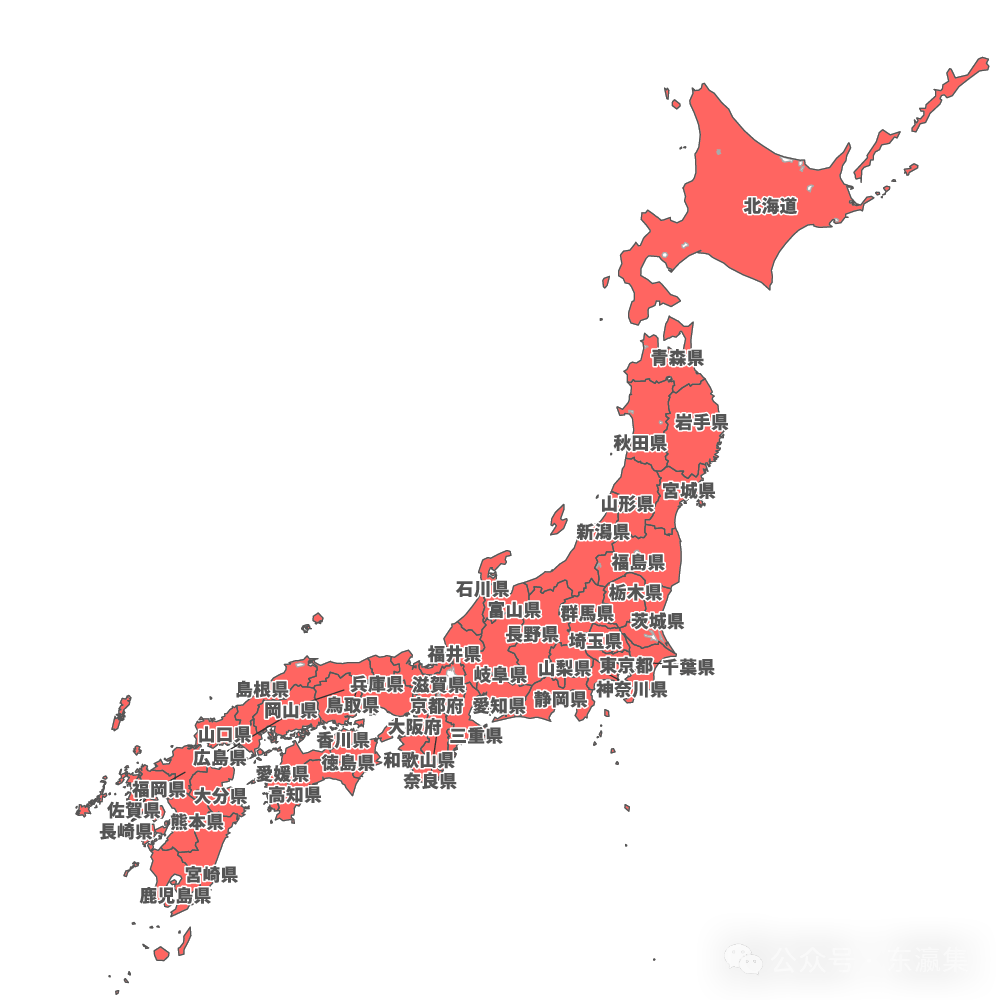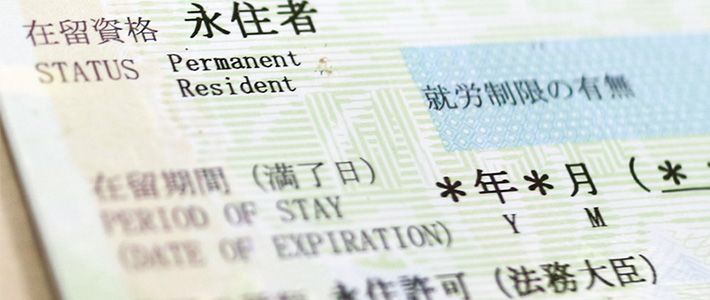The Oxford University Happiness Research Institute, in collaboration with Gallup, the United Nations Sustainable Development Solutions Network, and others, will release the 2025 World Happiness Report on March 20, 2025, International Happiness Day.
The World Happiness Report compiles survey results on happiness levels across countries and regions worldwide, released annually on March 20, International Happiness Day. This article will elaborate on the happiness levels of various countries and regions, including Japan, based on the 2025 World Happiness Report.
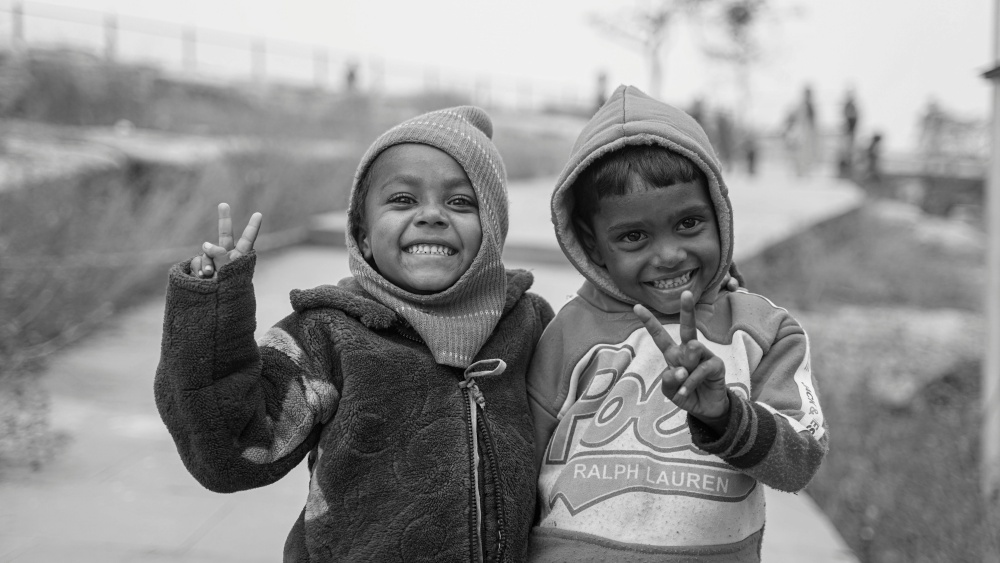
How the World Happiness Report Defines and Measures Happiness
Happiness is an abstract and relative concept. Different people and cultures have vastly different views, concepts, and perceptions of happiness, making it difficult to define clearly or measure and evaluate quantitatively.
The World Happiness Report uses a method called the Cantril Ladder to measure and score the subjective well-being of people in each country and region.
In the Cantril Ladder, respondents are asked, "Imagine a ladder with steps numbered from 0 to 10, where 10 represents the best possible life for you and 0 represents the worst possible life for you. Which step do you think you are currently on?" Respondents then use a number between 0 and 10 to subjectively evaluate their current situation. The World Happiness Report calculates the happiness index for each country or region by averaging these survey results. Thus, the happiness in the World Happiness Report can also be rephrased as "the level of satisfaction with life among people in each country and region."
The 2025 World Happiness Report primarily uses data from the Gallup World Poll collected over three years from 2022 to 2024, gathering responses from approximately 1,000 people per country or region. The Gallup World Poll is a public opinion survey conducted by the American polling and consulting firm Gallup, Inc..
[2025 Edition] World Happiness Index Rankings
Now, let’s take a look at the world happiness rankings from the 2025 World Happiness Report. The 2025 rankings cover 147 countries and regions worldwide.
| Rank | Country/Region Name | Happiness Index |
|---|---|---|
| 1 | Finland | 7.736 |
| 2 | Denmark | 7.521 |
| 3 | Iceland | 7.515 |
| 4 | Sweden | 7.345 |
| 5 | Netherlands | 7.306 |
| 6 | Costa Rica | 7.274 |
| 7 | Norway | 7.262 |
| 8 | Israel | 7.234 |
| 9 | Luxembourg | 7.122 |
| 10 | Mexico | 6.979 |
| 11 | Australia | 6.974 |
| 12 | New Zealand | 6.952 |
| 13 | Switzerland | 6.935 |
| 14 | Belgium | 6.910 |
| 15 | Ireland | 6.889 |
| 16 | Lithuania | 6.829 |
| 17 | Austria | 6.810 |
| 18 | Canada | 6.803 |
| 19 | Slovenia | 6.792 |
| 20 | Czech Republic | 6.775 |
| 21 | United Arab Emirates | 6.759 |
| 22 | Germany | 6.753 |
| 23 | England | 6.728 |
| 24 | United States | 6.724 |
| 25 | Belize | 6.711 |
| 26 | Poland | 6.673 |
| 27 | Taiwan | 6.669 |
| 28 | Uruguay | 6.661 |
| 29 | Kosovo | 6.659 |
| 30 | Kuwait | 6.629 |
| 31 | Serbia | 6.606 |
| 32 | Saudi Arabia | 6.600 |
| 33 | France | 6.593 |
| 34 | Singapore | 6.565 |
| 35 | Romania | 6.563 |
| 36 | Brazil | 6.494 |
| 37 | El Salvador | 6.492 |
| 38 | Spain | 6.466 |
| 39 | Estonia | 6.417 |
| 40 | Italy | 6.415 |
| 41 | Panama | 6.407 |
| 42 | Argentina | 6.397 |
| 43 | Kazakhstan | 6.378 |
| 44 | Guatemala | 6.362 |
| 45 | Chile | 6.361 |
| 46 | Vietnam | 6.352 |
| 47 | Nicaragua | 6.330 |
| 48 | Malta | 6.316 |
| 49 | Thailand | 6.222 |
| 50 | Slovakia | 6.221 |
| 51 | Latvia | 6.207 |
| 52 | Oman | 6.197 |
| 53 | Uzbekistan | 6.193 |
| 54 | Paraguay | 6.172 |
| 55 | Japan | 6.147 |
| 56 | Bosnia and Herzegovina | 6.136 |
| 57 | Philippines | 6.107 |
| 58 | South Korea | 6.038 |
| 59 | Bahrain | 6.030 |
| 60 | Portugal | 6.013 |
| 61 | Colombia | 6.004 |
| 62 | Ecuador | 5.965 |
| 63 | Honduras | 5.964 |
| 64 | Malaysia | 5.955 |
| 65 | Peru | 5.947 |
| 66 | Russia | 5.945 |
| 67 | Cyprus | 5.942 |
| 68 | China | 5.921 |
| 69 | Hungary | 5.915 |
| 70 | Trinidad and Tobago | 5.905 |
| 71 | Montenegro | 5.877 |
| 72 | Croatia | 5.870 |
| 73 | Jamaica | 5.870 |
| 74 | Bolivia | 5.868 |
| 75 | Kyrgyzstan | 5.858 |
| 76 | Dominican Republic | 5.846 |
| 77 | Mongolia | 5.833 |
| 78 | Mauritius | 5.832 |
| 79 | Libya | 5.820 |
| 80 | Moldova | 5.819 |
| 81 | Greece | 5.776 |
| 82 | Venezuela | 5.683 |
| 83 | Indonesia | 5.617 |
| 84 | Algeria | 5.571 |
| 85 | Bulgaria | 5.554 |
| 86 | North Macedonia | 5.503 |
| 87 | Armenia | 5.494 |
| 88 | Hong Kong | 5.491 |
| 89 | Albania | 5.411 |
| 90 | Tajikistan | 5.411 |
| 91 | Georgia | 5.400 |
| 92 | Nepal | 5.311 |
| 93 | Laos | 5.301 |
| 94 | Turkey | 5.262 |
| 95 | South Africa | 5.213 |
| 96 | Mozambique | 5.190 |
| 97 | Gabon | 5.120 |
| 98 | Ivory Coast | 5.102 |
| 99 | Iran | 5.093 |
| 100 | Republic of the Congo | 5.030 |
| 101 | Iraq | 4.976 |
| 102 | Guinea | 4.929 |
| 103 | Namibia | 4.911 |
| 104 | Cameroon | 4.887 |
| 105 | Nigeria | 4.885 |
| 106 | Azerbaijan | 4.875 |
| 107 | Senegal | 4.856 |
| 108 | Palestine | 4.780 |
| 109 | Pakistan | 4.768 |
| 110 | Niger | 4.725 |
| 111 | Ukraine | 4.680 |
| 112 | Morocco | 4.622 |
| 113 | Tunisia | 4.552 |
| 114 | Mauritania | 4.542 |
| 115 | Kenya | 4.510 |
| 116 | Uganda | 4.461 |
| 117 | Gambia | 4.423 |
| 118 | India | 4.389 |
| 119 | Chad | 4.384 |
| 120 Ascotainment | ||
| 120 | Burkina Faso | 4.383 |
| 121 | Benin | 4.357 |
| 122 | Somalia | 4.347 |
| 123 | Mali | 4.345 |
| 124 | Cambodia | 4.341 |
| 125 | Ghana | 4.340 |
| 126 | Myanmar | 4.321 |
| 127 | Togo | 4.315 |
| 128 | Jordan | 4.310 |
| 129 | Liberia | 4.277 |
| 130 | Madagascar | 4.157 |
| 131 | Zambia | 3.912 |
| 132 | Ethiopia | 3.898 |
| 133 | Sri Lanka | 3.891 |
| 134 | Bangladesh | 3.851 |
| 135 | Egypt | 3.817 |
| 136 | Tanzania | 3.800 |
| 137 | Eswatini | 3.774 |
| 138 | Lesotho | 3.757 |
| 139 | Comoros | 3.754 |
| 140 | Yemen | 3.561 |
| 141 | Democratic Republic of the Congo | 3.469 |
| 142 | Botswana | 3.438 |
| 143 | Zimbabwe | 3.396 |
| 144 | Malawi | 3.260 |
| 145 | Lebanon | 3.188 |
| 146 | Sierra Leone | 2.998 |
| 147 | Afghanistan | 1.364 |
Source: World Happiness Report
The 2025 world happiness rankings are as follows: 1st place Finland (happiness score 7.736), 2nd place Denmark (happiness score 7.521), 3rd place Iceland (happiness score 7.515), 4th place Sweden (happiness score 7.345), 5th place Netherlands (happiness score 7.306), 6th place Costa Rica (happiness score 7.274), 7th place Norway (happiness score 7.262), 8th place Israel (happiness score 7.234), 9th place Luxembourg (happiness score 7.122), 10th place Mexico (happiness score 6.979).
In the 2025 happiness rankings, Finland, which ranks first in the world, has held the top spot for eight consecutive years since 2018. Denmark, ranking second in the world in 2025, has also maintained the second position in global happiness for seven consecutive years since 2019.
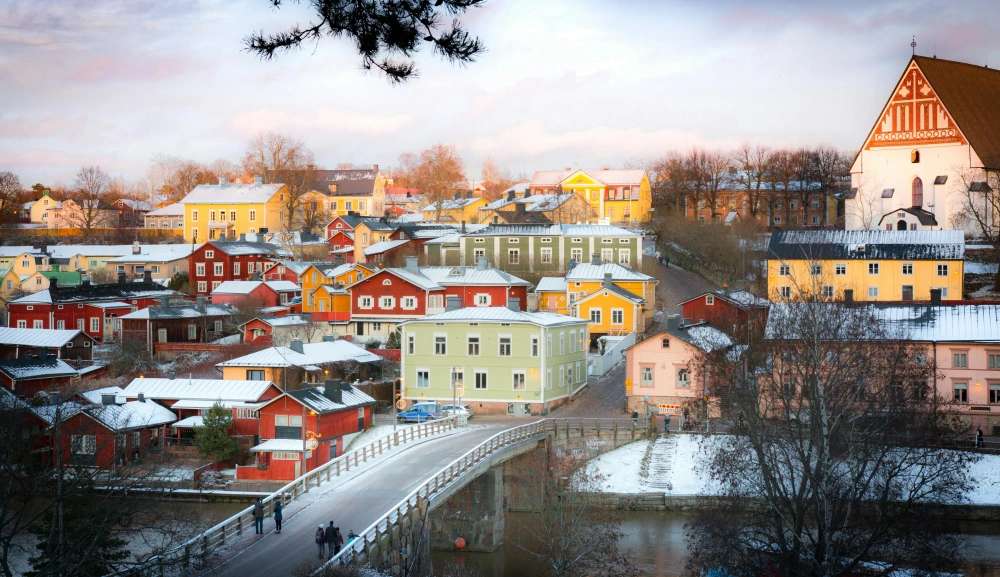
As in previous years, many European countries rank high in the happiness rankings, with 14 of the top 20 countries being European nations. This result is not only related to the relatively high average economic level in Europe but may also be linked to overall high life satisfaction in Europe, including well-established social systems, political stability, widespread education and healthcare, and sufficient social support.
In Europe, the five Nordic countries—Finland, Denmark, Iceland, Sweden, and Norway—exhibit particularly high happiness levels and, as in the previous year, all rank within the top ten.
The 10 Least Happy Countries in the World
In contrast, the lowest-ranked countries in the 2025 world happiness rankings are Afghanistan (happiness score 1.364), Sierra Leone (happiness score 2.998), Lebanon (happiness score 3.188), Malawi (happiness score 3.260), Zimbabwe (happiness score 3.396), Botswana (happiness score 3.438), Democratic Republic of the Congo (happiness score 3.469), Yemen (happiness score 3.561), Comoros (happiness score 3.754), and Lesotho (happiness score 3.757).
As in the previous year, the least happy country globally is Afghanistan (happiness score 1.364). With a happiness score drop of approximately 0.36 points from the previous year, Afghanistan remains the only country with a single-digit happiness score worldwide.
Afghanistan continues to face a deteriorating security situation, political oppression, and the loss of press and speech freedoms. The threat of terrorism and armed conflict is increasingly severe, making it difficult for people to live with peace of mind. Additionally, women’s rights and freedoms are severely restricted, with almost no opportunities for education, work, or participation in society. As a result, Afghanistan is losing many of the elements that contribute to a happy life.
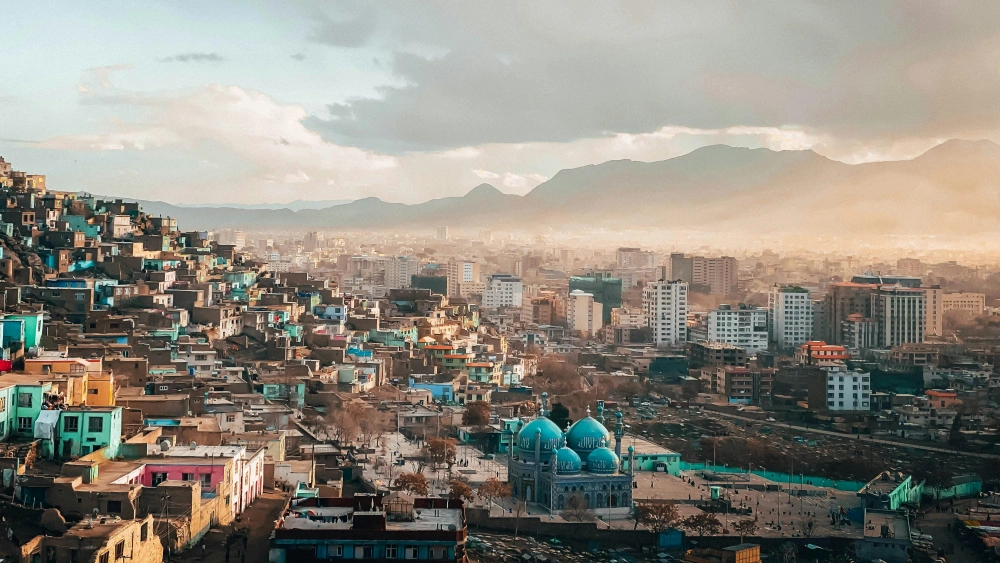
Japan’s Happiness Ranking Falls to 55th Globally, Down 4 Places from Last Year
In 2025, Japan’s happiness ranking stands at 55th in the world, a drop of 4 places from the previous year’s 51st position, marking the second consecutive year of a four-place decline. Although its ranking has fallen, Japan’s happiness score in 2025 reached 6.147, an increase of 0.087 from the previous year’s 6.060.
Japan is one of the world’s major economies, with extremely high levels of social security and healthcare. However, in recent years, its happiness ranking has hovered between 40th and 50th place.
The World Happiness Report points out that the reasons for this include weak social connections and a strong sense of isolation in Japanese society, as well as a relatively low proportion of people who feel they "can freely choose their own life" compared to other developed countries, due to peer pressure and stereotypes.
